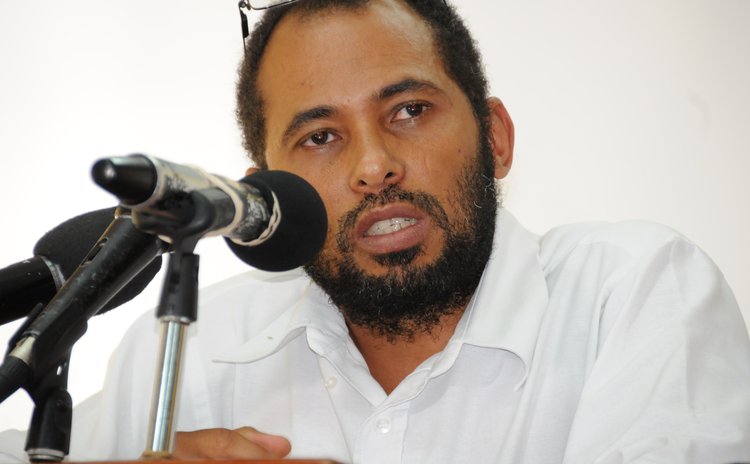Change the Change
A Dominica Business Forum consultation on electoral reform wants major changes to Sir Dennis Byron's new draft election laws

There's considerable risk in defining residency as living in a polling district for non-continuously nine days in any given year over ten years.
That could create a backdoor entrance for 42, 000 people holding Dominican passports under the Citizenship by Investment (CBI) programme to vote in Dominica's general elections.
Anthony LeBlanc believes that the need for more clarity on the residency issue is one of the significant flaws in Sir Dennis Byron's proposed electoral reform legislation. Dominicans are currently discussing the proposals before it goes to parliament.
"(In the draft law) we just need to require that CBI applicants remain in Dominica for nine days at a HOTEL or AirB&B, and they will be entitled to VOTE!" said Leblanc, an engineer and a member of the Dominica Business Forum (DBF).
He spoke during a three-hour DBF consultation on the Byron Draft Electoral Legislation held at the Truth &Grace Fellowship Global Church on Independence Street, Roseau, on August 3 2023.
Based on current legislation, "Residency qualification for voting ought to have been defined as "(one ought to be) living in a polling district continuously for three months before the polling day", Leblanc contended.
He added: "Sir Byron is proposing a draft Registration of Electors Bill to allow persons, who are not normally resident in a country, to vote in that country where they spend as little as ten days of their annual holidays period".
CBI citizens should not be able to vote
Another contributor at the DBF consultation, Pastor Randy Rodney of the Dominica Association of Evangelical Churches, agrees with Leblanc's stance on the issue of residency.
"We do not believe those who have sworn allegiance to another country and who are ordinarily resident in that other country should be part of the election process in the Commonwealth," said Rodney. "Citizens who came to be citizens through the CBI process should not be eligible to vote unless such citizens take up permanent citizens of Dominica and become ordinary residents".
There are an estimated 42,000 CBI citizens of Dominica.
In June 2023, Sir Dennis Byron, Dominica's sole commissioner on electoral reform, presented his two-part report to Prime Minister Roosevelt Skerrit.
Skerrit first announced at the swearing-in of his new cabinet in December 2019 that Byron, the retired president of the Caribbean Court of Justice (CCJ), had been selected as the sole commissioner for electoral reform.
At the beginning of March 2020, the prime minister revealed that the prominent jurist was "to make a first visit to Dominica in March on our information gathering exercise, and once he comes into Dominica, he will be exposed to all the relevant stakeholders, including the media."
However, with Caribbean countries, including Dominica, having had to close their borders due to COVID-19, there was no movement on this until August 25, when the cabinet met and approved his appointment "to examine the electoral process in Dominica", according to the minutes of the meeting signed on September 1 by Steve Ferrol, the cabinet secretary.
The ministers agreed that the scope of work would include a review of existing legislation to propose amendments, a review of electoral and other such reports, proposing recommendations on how to proceed, including legislative reforms to strengthen the electoral process and advice on voter identification cards, and advice on how to update and maintain the electoral register.
Sir Dennis would be paid EC$450,000 for his service, half of which was due at the beginning of the exercise and the remainder at the end, according to the minutes.
Other Contributors
Other presenters at the DBF consultation were the Dominica Freedom Party, Team Unity political party, Canadian Judge Dr. Irving Andre, Sir Dennis Byron, and the United Workers Party. Attorney General Levi Peter was invited but said he was otherwise occupied; Duncan Stowe, the chair of the Dominica Electoral Commission, did not attend, and the ruling Dominica Labour Party was also absent.
At the beginning of the consultation, Lawyer Noelise Knight Didier read a document on election campaign finance that Julian Johnson, the former Cabinet Secretary and head of the Integrity in Public Office, was scheduled to present. Johnson was reportedly out of State.
Among other amendments that the DBF suggested to the Byron report on electoral reform were the issuance of Voter Identification Cards as opposed to National Identification Cards; a fixed date for general elections; limits on the number of terms for a prime minister to two terms; confirmation of voters in Dominica and not overseas and financing of political parties, among others.




